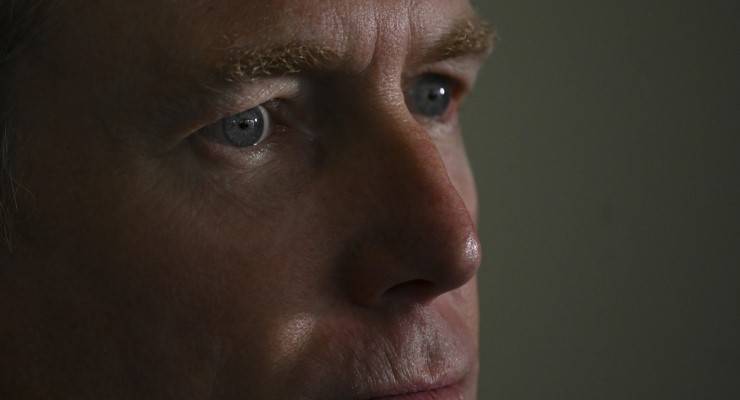
Christian Porter has spent his career championing the belief that reputations deserve to be protected. Now as he battles to save his own he’s showing just how far he’s willing to go to defend this belief.
Porter said yesterday that if he stood down from his position as attorney-general: “Any person in Australia can lose their career, their job, their life’s work based on nothing more than an accusation that appears in print.”
He spoke of the injustice of “a child” growing up in Australia knowing they could one day have everything they built erased “simply by the printing of an allegation”: “Every child we raise can have their lives destroyed by online reporting of accusations alone.”
It’s not the first time Porter has evoked the notion of reputational damage as some kind of sin. As attorney-general he has repeatedly pursued the idea that the reputations of public figures should forever be guarded against the lurking risk of “unjust and irreparable harm”.
In an address to the National Press Club in 2019, he described the right of an individual to protect their reputation as “the foundational goal of any liberal democracy”.
“As important as detecting and deterring corruption is to this government, we must always design systems to prevent injustice and unfairness to people investigated and accused by the overwhelming authority of the state,” he said.
Porter has even seen reputational risk where others haven’t. In 2019 he launched a crackdown on, of all things, an animal rights website because he believed by revealing the location of abattoirs it exposed farmers to smear.
He also championed the right of protecting peoples’ reputations when weighing up changes to defamation law, saying that while there was a need to stop unnecessary defamation action, there was a balance to be struck between the right to know and someone having their lives “damaged without sufficient cause or evidence”.
But nowhere has his belief in reputations as sacred been more visible than the process he has embarked upon in creating a toothless integrity commission that has never seen the light of day.
His creation — an anti-corruption body that protects the corrupt instead of exposing them — is underpinned by a contempt for state integrity commissions such as the NSW ICAC, which he believes has unfairly tainted the hard-won reputations of tireless public servants.
“Reputations have been unfairly damaged — that is just a matter of fact,” he has said.
“Many people’s lives have been damaged actually, irretrievably and unfairly. And these and other failures are things warranting critical consideration so we learn from them in designing future bodies of this type.”
So desperate has he been to protect reputations of people in high office that he sought the expertise of none other than former NSW Crown prosecutor Margaret “destroy ICAC” Cunneen SC — a notorious and fierce critic of the corruption watchdog.
Porter’s belief that reputations are sacrosanct and deserving of government protection stands as perhaps his biggest conflict as the minister in charge of an integrity body.
If we take him at his word — that he is an innocent man whose life has been shattered by one big lie — how can we expect him to pursue a body that, by its very nature, is required to put reputations on the stand?
It’s just one of the many hypocrisies of Porter in which we are now being forced to deal with.








Crikey encourages robust conversations on our website. However, we’re a small team, so sometimes we have to reluctantly turn comments off due to legal risk. Thanks for your understanding and in the meantime, have a read of our moderation guidelines.